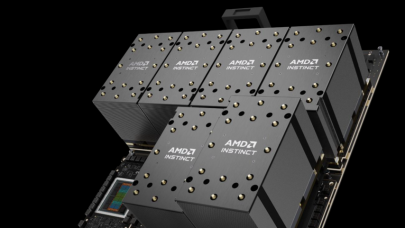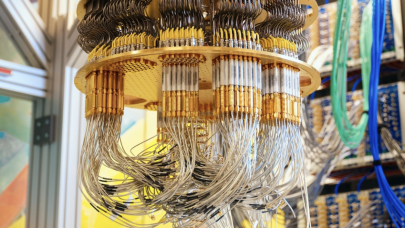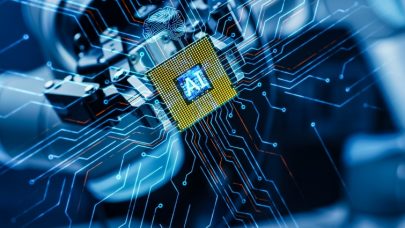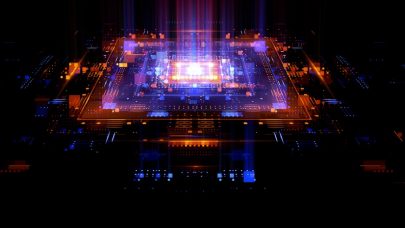July 22, 2020 — Four leading research organizations formed a pioneering collaboration that will work to overcome challenges related to the use of high-performance computing (HPC) to support large, data-intensive science projects. The members of the collaboration are CERN, the European Organization for Nuclear Research; SKAO, the organization leading the development of the Square Kilometre Array radio-telescope; GÉANT, the pan-European network and services provider for research and education; and PRACE, the Partnership for Advanced Computing in Europe.
The next-generation of HPC technology offers great promise for supporting scientific research. Exascale supercomputers – machines capable of performing a quintillion, or a billion billion, calculations per second – are expected to become a reality in the next few years. This change in the power of HPC technology, coupled with the growing use of machine learning, will be vital in ensuring the success of big science projects scheduled to come online this decade, such as SKA and CERN’s High-Luminosity Large Hadron Collider (HL-LHC).
“Heterogeneous architectures hold the promise of delivering significantly more computing power which we have to harness to address the computing challenges of the HL-LHC”, says Eckhard Elsen, CERN Director for Research and Computing. “The smooth integration of these resources typically available at HPCs into the globally distributed Worldwide LHC Computing Grid [WLCG], will be essential for the computing model of the future”, adds Maria Girone, CERN openlab’s Chief Technology Officer.
The collaboration between CERN, SKAO, GÉANT and PRACE will see the organizations work together to help realize the full potential of the coming new generation of HPC technology. During an initial period of 18 months, the collaboration will develop a benchmarking test suite and a series of common pilot ‘demonstrator’ systems.
Establishing a common benchmark suite will help the organizations to measure and compare the performance of different types of computing resources for data-analysis workflows from astronomy and particle physics. The suite will include applications representative of both communities — reflecting today’s needs, as well as those of the future. It will be for running on both HPC resources and high-throughput computing (HTC) resources, like the WLCG.
“With the sheer quantity of data that will flow from the SKA antennas towards two supercomputing centers, one in Australia and one in South Africa, developments in high-performance computing and high-speed networks will be key for the SKA Observatory,” says Professor Philip Diamond, SKA Director-General. “The value of this collaboration was demonstrated by the recently concluded H2020 AENEAS project,” adds Chiara Ferrari, SKA-France Director and Chair of the AENEAS General Assembly. “Working with such leading organizations is of paramount importance to identify optimized solutions for the future world-wide network of SKA regional centers.”

The series of pilot ‘demonstrators’ developed will also include systems for data access and authenticated workflows. It is indeed vital that data can be delivered and accessed quickly and in a secure manner.
“GÉANT exists to serve research and education and, together with Europe’s National Research and Education Networks, we provide networking and access services that are vital to large-scale, highly data-intensive projects such as the HL-LHC and the SKA,” says Erik Huizer, Chief Executive Officer of GÉANT. “We look forward to further strengthening our long-standing relationship with CERN, SKAO and PRACE and ensuring next-generation HPC technology is easily accessible for all scientific communities”. Enzo Capone, Head of Research Engagement and Support at GÉANT adds, “GÉANT is extremely proud to be part of this agreement, alongside partners and communities with which we have a long-standing relationship already, but now specifically focussing on a number of innovative activities that aim to scale the synergies between big data production, data movement, AAI services and high performance computing to the next level”.
In addition, the four organizations will work together to establish a training program to help researchers make the most of the new computing architectures that are becoming available.
“Big science needs deep and intense collaboration across disciplines, organizations and borders. PRACE is very proud to see four large European and international infrastructures come together in this historic collaboration. Now that the paperwork is done, the real work can start, mixing numerical simulation, scientific theories and data even more intimately, and we are looking forward to it”, explains Philippe Lavocat, PRACE Council Vice-Chair. “One of the central aspects of this collaboration that PRACE will lead is training and education: creating and supporting the next generation of supercomputing experts, and filling the gaps that we currently see in the skills available in the HPC ecosystem,” adds Florian Berberich, Member of the PRACE Board of Directors.
Today’s agreement was signed in an online meeting by Eckhard Elsen, Director for Research and Computing at CERN; Philip Diamond, SKA Director-General; Erik Huizer, Chief Executive Officer of GÉANT; and Philippe Lavocat, PRACE Council Vice-Chair. The four organizations are now planning a first joint event later this year, hosted at CERN with the support of CERN openlab.
About PRACE
The mission of PRACE (Partnership for Advanced Computing in Europe) is to enable high-impact scientific discovery and engineering research and development across all disciplines to enhance European competitiveness for the benefit of society. PRACE seeks to realise this mission by offering world class computing and data management resources and services through a peer review process. PRACE aisbl is funded by the PRACE Members The Implementation Phase of PRACE receives funding from the EU’s Horizon 2020 Research and Innovation Programme (2014-2020).
Source: PRACE

































































